Zulfiqar Ali Bhutto, a towering figure in Pakistani politics, left an indelible mark on the country’s history. This article delves into the life, accomplishments, and enduring legacy of this charismatic leader who played a pivotal role in shaping Pakistan’s political landscape. Zulfiqar Ali Bhutto, a prominent figure in the annals of Pakistani politics is a name that resonates with history and influence.
His life accomplishments, and enduring legacy have left an indelible mark on the country’s political landscape. In this article we will delve into the remarkable journey of this charismatic leader, exploring his early life, political career and the lasting impact he has had on Pakistan.
Early Life and Education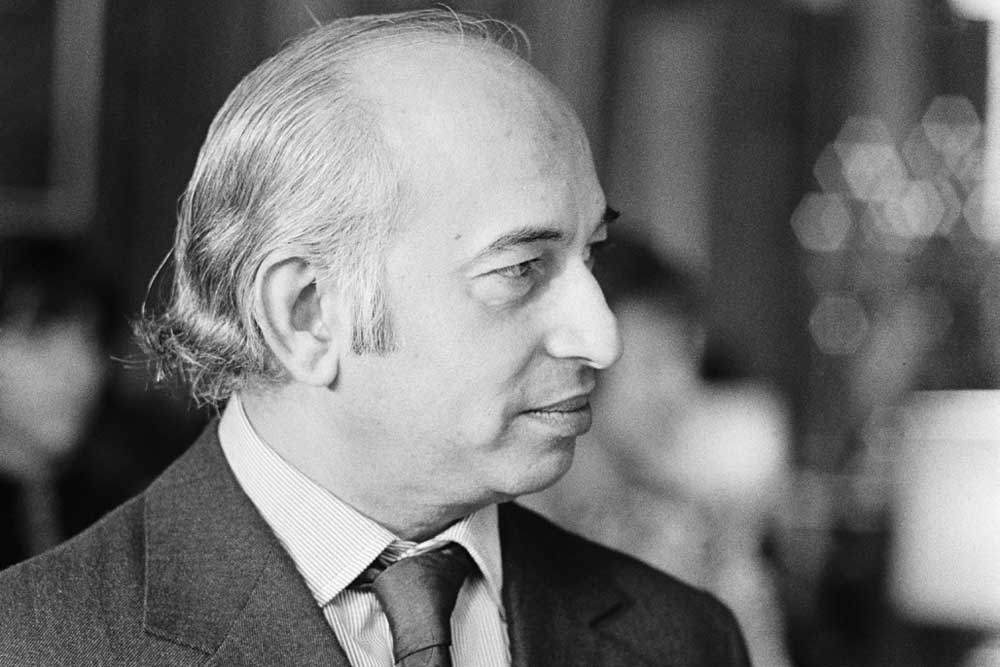
Zulfiqar Ali Bhutto was born on January 5, 1928 in Larkana Sindh which was part of British India at the time. He hailed from a prominent feudal and political family in the region. His early education took place in Bombay where he showed remarkable academic prowess. Later he pursued higher studies in the United States attending the University of California, Berkeley and then proceeding to study at the University of Oxford.
Growing up in a prominent family he received his initial education in Bombay, where his academic prowess began to shine. This period of his life laid the foundation for the intellectual and charismatic leader he would become. Bhutto’s academic excellence was evident from a young age. His dedication to his studies and innate intelligence set him apart. He excelled in a variety of subjects, displaying a keen interest in politics and international affairs even during his early years.
Entry into Politics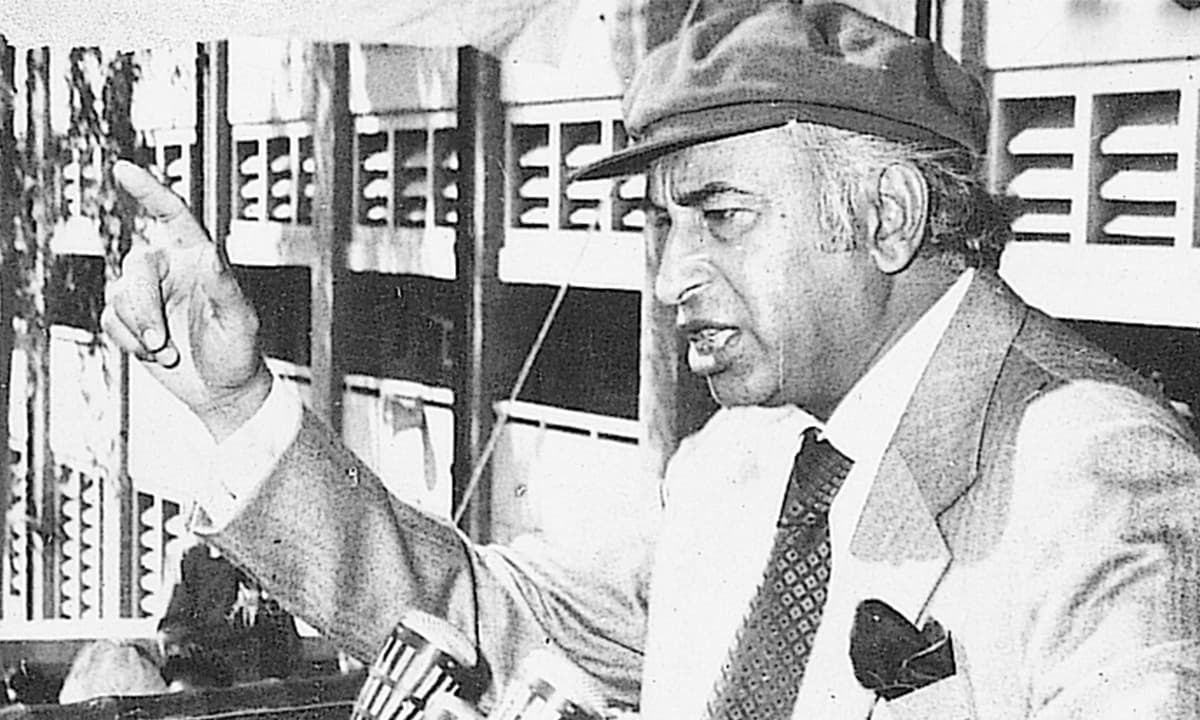
Bhutto’s entry into politics was influenced by his family’s involvement in the All-India Muslim League. After Pakistan’s creation in 1947 he quickly climbed the political ladder. In 1958, he joined the government of President Sikander Mirza and later served as a minister under President Ayub Khan. His political acumen and eloquence earned him recognition as a rising star. Zulfikar Ali Bhutto was born into a prominent political family in Larkana, Sindh on January 5, 1928.
His father, Sir Shah Nawaz Bhutto, was a respected politician and served as a member of the Bombay Legislative Assembly. This familial connection to politics laid the foundation for Bhutto’s own future in the political arena. The All-India Muslim League played a pivotal role in shaping Bhutto’s political ideology. The league led by Mohammad Ali Jinnah, advocated for the creation of a separate Muslim state, which ultimately led to the establishment of Pakistan in 1947. Bhutto’s family’s association with the league deeply influenced his commitment to the cause of Pakistan.
Founding of the Pakistan People’s Party 
In 1967, Bhutto founded the Pakistan People’s Party (PPP), a progressive political party that aimed to uplift the masses and promote social justice. The PPP became a formidable force in Pakistani politics, and Bhutto’s charismatic leadership resonated with the masses.In the late 1960s Pakistan was grappling with numerous challenges, including economic disparities political instability, and a disconnected leadership.
Zulfikar Ali Bhutto a brilliant and dynamic statesman, recognised the dire need for change. He envisioned a political party that would serve as a beacon of hope for the marginalized and downtrodden.In 1967 Bhutto took the momentous step of founding the Pakistan People’s Party. This was a historic moment in Pakistan’s political history as it marked the inception of a progressive force dedicated to uplifting the masses.
Rise to Premiership
Bhutto’s political career reached its zenith when he became Pakistan’s Prime Minister in 1971. He played a crucial role in negotiations following the Bangladesh Liberation War and signed the Shimla Agreement with India in 1972 which brought an end to hostilities and established a framework for peaceful relations. One of the most challenging phases of Bhutto’s political career was during the Bangladesh Liberation War in 1971. The war resulted in the separation of East Pakistan (now Bangladesh) from West Pakistan (present-day Pakistan).
Bhutto, who was serving as Pakistan’s Foreign Minister at the time, faced immense diplomatic pressures and challenges.Bhutto’s diplomatic skills were put to the test as he engaged in negotiations with India following the Bangladesh Liberation War. In 1972 he signed the Shimla Agreement with the Indian Prime Minister Indira Gandhi. This historic agreement brought an end to hostilities and established a framework for peaceful relations between the two nations.
Nationalization Policies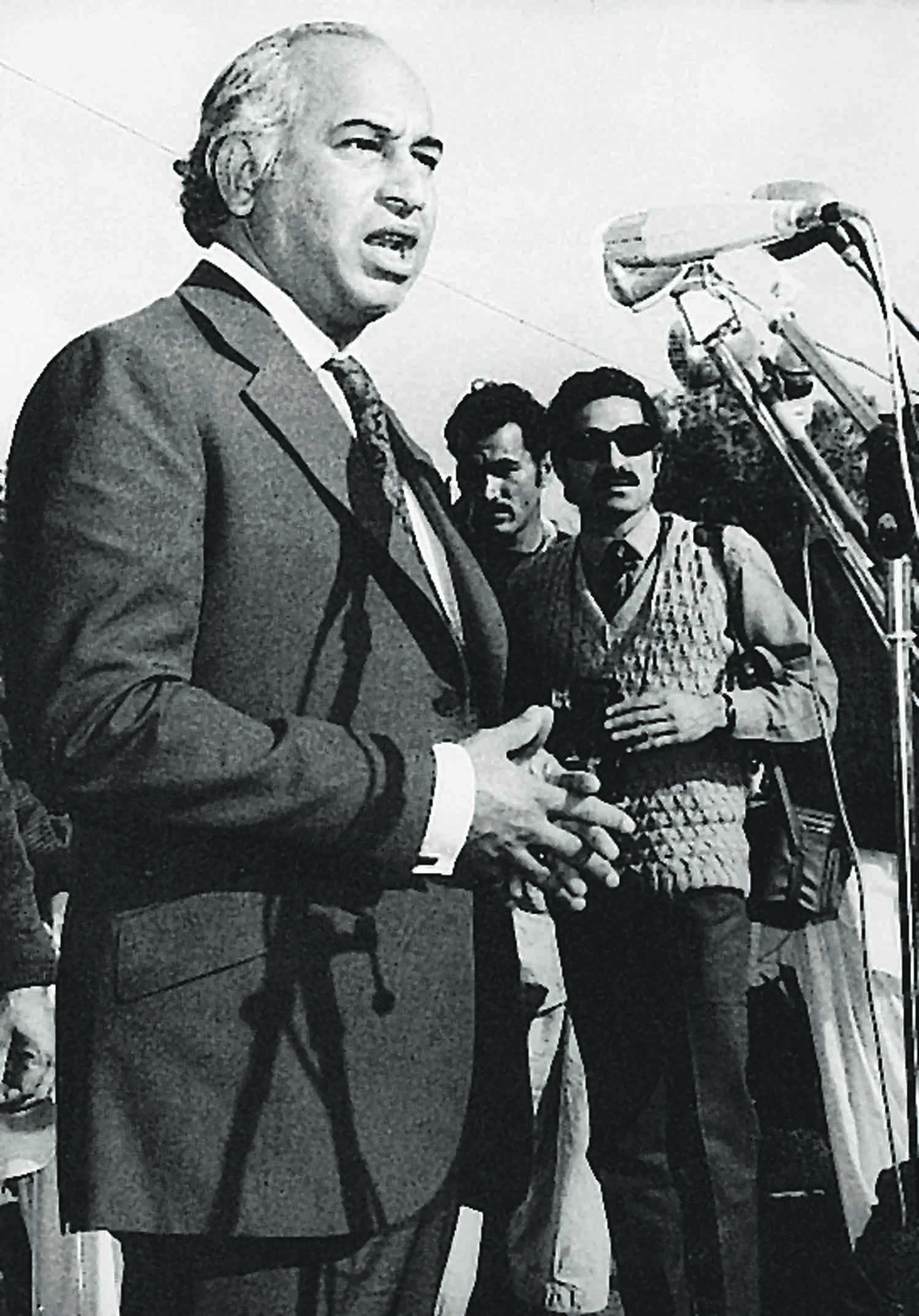
During his tenure as Prime Minister Bhutto implemented a series of nationalization policies targeting key industries and institutions. While these measures aimed to reduce economic disparities they faced criticism for their impact on private enterprise and investment.Bhutto’s vision for Pakistan was rooted in socialism and a desire to bridge the wealth gap.
To achieve this, he initiated a series of nationalization measures targeting various sectors of the economy.Under Bhutto’s leadership, several key industries were brought under state control. These included steel mills banks, and oil companies.
The rationale behind this was to ensure that the profits from these sectors benefited the masses rather than a select few.One of the primary goals of Bhutto’s nationalization policies was to reduce the economic disparities prevalent in Pakistan. By taking control of major industries he aimed to create a more equitable distribution of wealth.
Constitutional Reforms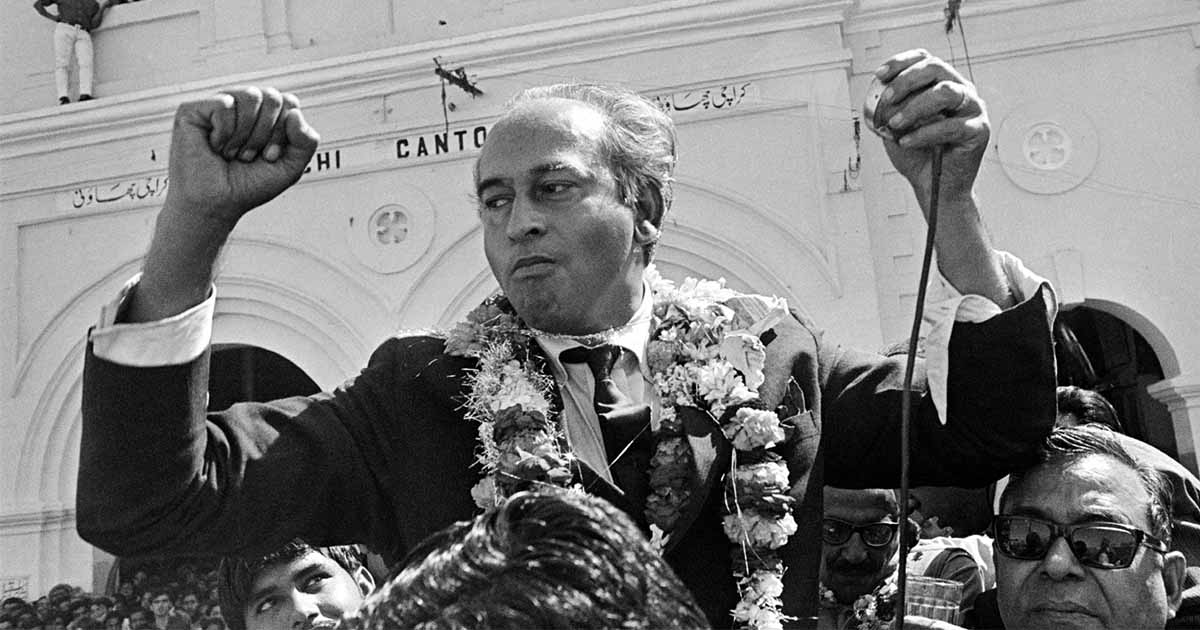
Bhutto also introduced significant constitutional reforms, including the 1973 Constitution of Pakistan, which declared Pakistan an Islamic Republic and granted substantial autonomy to its provinces. Zulfikar Ali Bhutto, a charismatic and visionary leader, assumed office as Pakistan’s Prime Minister in 1973.
This marked the end of Pakistan’s presidential system and the beginning of a new era in the country’s political history.Bhutto’s Pakistan People’s Party (PPP) secured a resounding victory in the 1970 general elections, setting the stage for him to play a pivotal role in drafting a new constitution.
Political Career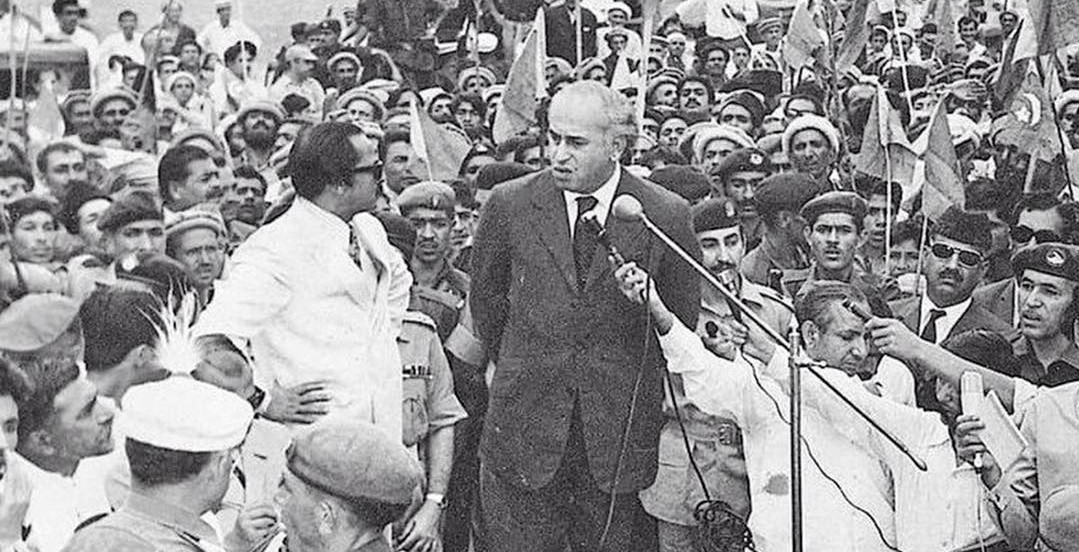
Zulfiqar Ali Bhutto entered Pakistan’s political arena in the early 1950s, quickly rising through the ranks of the civil service. His association with President Ayub Khan’s government allowed him to gain valuable experience and connections. However Bhutto’s true political journey began when he joined the Pakistan People’s Party (PPP) in 1967 a party he founded. Upon his return to Pakistan Bhutto entered the civil service a path that would serve as his initial foray into the political landscape.
He quickly made a name for himself with his intellect and determination rising through the ranks.Bhutto’s political career gained momentum when he joined the government of President Ayub Khan. He served in various key positions including as the Minister of Commerce and later as the Minister of Foreign Affairs. This association allowed Bhutto to gain valuable experience and forge influential connections.
Downfall and Execution
However Bhutto’s political journey took a tragic turn. Amidst mounting political turmoil, General Muhammad Zia-ul-Haq seized power in a military coup in 1977. Bhutto was arrested tried on controversial charges of conspiracy to commit murder, and ultimately executed in 1979. His death sent shockwaves through the nation and the international community.
Bhutto’s role in Pakistan’s foreign affairs was pivotal during this time especially during the 1965 war with India. His eloquence and diplomacy made him a rising star on the political horizon.
In December 1971, Bhutto was appointed as Pakistan’s first civilian martial law administrator and later became the country’s first civilian Chief Martial Law Administrator. His influence continued to grow, and he assumed the role of Pakistan’s Prime Minister on August 14, 1973 marking a historic moment in the nation’s history.
Legacy
Zulfiqar Ali Bhutto’s legacy endures to this day. The Pakistan People’s Party under the leadership of his descendants, continues to play a significant role in the country’s politics. Bhutto also advocated for Pakistan’s nuclear program seeing it as a means of safeguarding the nation’s security. His vision in this area laid the groundwork for Pakistan’s eventual nuclear capabilities.
Today, the PPP remains a significant player in Pakistan’s politics. It champions Bhutto’s vision of a progressive democratic Pakistan and continues to push for social justice and economic reforms.During his tenure as Pakistan’s Prime Minister from 1971 to 1977 Bhutto implemented significant economic reforms including the nationalization of key industries. These policies aimed to reduce economic disparities and empower the working class.
Summary
In conclusion, Zulfiqar Ali Bhutto was a dynamic and complex figure in Pakistan’s history. His life was marked by achievements and controversies, and his legacy continues to shape the nation’s political landscape. Bhutto’s impact on Pakistan is undeniable, making him a central figure in the country’s narrative.
FAQs
What were Zulfiqar Ali Bhutto’s major achievements?
Zulfiqar Ali Bhutto’s major achievements include founding the Pakistan People’s Party, negotiating the Shimla Agreement with India, and introducing significant constitutional reforms.
What led to Zulfiqar Ali Bhutto’s downfall?
Bhutto’s downfall was a result of mounting political turmoil, which culminated in a military coup led by General Zia-ul-Haq.
How is Zulfiqar Ali Bhutto’s legacy upheld today?
Zulfiqar Ali Bhutto’s legacy is upheld by the Pakistan People’s Party, which continues to be a significant political force in Pakistan.
What was the significance of the 1973 Constitution of Pakistan?
The 1973 Constitution of Pakistan declared the country an Islamic Republic and granted greater autonomy to its provinces, shaping the nation’s political structure.
Where can I learn more about Zulfiqar Ali Bhutto’s life and legacy?
For more information about Zulfiqar Ali Bhutto, you can access additional resources at
